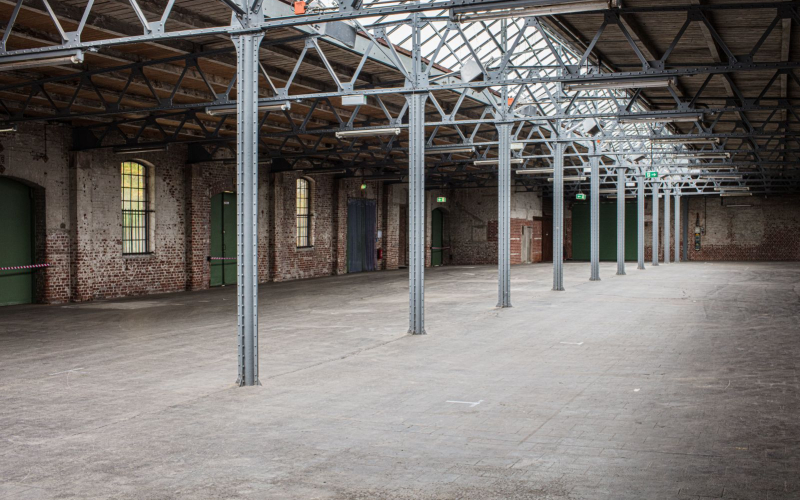How to Invest in Warehouse Real Estate
When it comes to real estate investing, most people think about houses. Have you ever thought about investing in a warehouse? Here are some tips to help you get you started.

If you have been thinking about entering the real estate investment market, then chances are you have had a good think about different types of investment. There are so many ways that you can invest, and it may surprise you that there are some that you have likely not even considered. One of these investment options is investing in warehouse real estate. It may seem unconventional, but do not instantly dismiss it. It just could be exactly what you are looking for.
Investment in warehouses may not seem as glamorous as other investment strategies. There is a reason though why so many people are finding success. Warehouses are always going to be in demand, and so therefore make for a good business model. So how can you start your new investment strategy?
What is warehouse real estate?
It may seem surprising that there is money to be made by investing in warehouses. Warehouses are part of the industrial real estate field, and they have been growing with potential over the past years. Investing in warehouses is more than simply buying a large shared and finding a tenant. It can be somewhat complex, but at the same time very rewarding.
Millionacres predicts that investing in warehouses could be the next big thing. This is simply because there has been a recent increase in demand due to the changes in retail trends. Many retailers are opting away from the typical physical storefront, and this means they need to store their goods somewhere. And what better place than to use a warehouse that you have invested in? Warehouses are generally higher value than a standard apartment, so rather than have a single person own an entire warehouse, it is common to see investors focusing on industrial REITs (real estate investment trusts) or join in a partnership.
What are the pros and cons of investing in a warehouse?
There are always going to pros and cons with any type of investment, and warehouses and industrial investments are no different. So, what are the main advantages to warehouses, and what are the cons? Price Edwards discusses them below.
Pros
- Strong leases. Unlike residential or even commercial real estate, warehouse leases will have longer term tenants with strong credit. This means there will be longer lease terms and less tenant turnover. They will be commonly used as a place of business, so lease terms tend to be more simple.
- A warehouse will have fewer landlord responsibilities and complexities than a residential property. Warehouses are simple in design and common issues with residential properties such as holes in the walls etc. are not an issue. This also means that operating costs will be lower for the landlords.
- Investment stability. When you enter an investment, chances are you are wanting it to last long term. All investments have risks, there is no avoiding that. But industrial real estate such as warehouses tend to be much more recession proof. They also tend to appreciate over time and rise in value, while other property types will lower in value.
Cons
- Harder to change between tenants. Each tenant will have different needs, and different design requirements. If you have a certain set up for on tenant, it can be hard finding a new one with the same. So, it can be time consuming and pricy to swap from one tenant to another.
- Lower availability. There are going to be more residential real estate options than warehouse options. So good deals can be harder to find. There can also be more demand for good investments, therefore more competition. This can make it harder and more expensive to get into than expected. There is a current market vacancy of only 4.2%, which is very low.
There is no perfect investment, and although warehouse real estate has its pros over other types, it also has its cons. These need to be considered, and you need to work out whether your individual needs will work for this type of investment.
What different ways are there to invest in warehouses?
You may think that investing in a warehouse is simple, but there is more to it than searching the classifieds for buildings on sale. There are two main methods for industrial investing, and each can be extremely beneficial if done properly. The main types of investments are explained by US News as being the following.
Passive Investment
Because warehouses are generally high value, it can be a smarter strategy to consider passive investments such as trusts and stocks. Warehouses are also very hands on, so unless you have the time and energy to devote to the management, then passive investments could be the way to go. There are plenty of low-cost capital, publicly traded REITs available. This way you can have a piece of the real estate pie and minimize the risk and responsibility.
Owning a warehouse straight up
If you decide to go all in, then you might want to consider property owning a warehouse and leasing it out. This requires much more start up capital, and you can either build a new property or purchase an existing warehouse. Existing warehouses are preferred, as many times they will already have established tenants so this will save you having to fill them. And you get instant income this way.
Like residential and commercial properties, there are different types and sizes of warehousing to invest in., It can be a good idea to start small and build your way up once you have your foot in the door and are comfortable.
Conclusion
No matter what method of investment you choose, investing in the industrial field is always going to be a good idea. Although they require more management, their returns can also be higher. It may take more work than other types of investment, but if done properly, warehouse investments can be a great way to build long term wealth.








